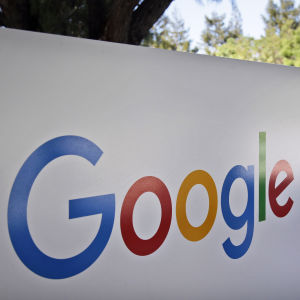Will the EU’s new Copyright Directive lead to mass censorship of the internet? That’s the fear of some in the tech industry in the wake of new European Union regulations.
To comply with the EU’s updated Copyright Directive, tech platforms like Google and Facebook may have to install “upload filters” to find and remove copyrighted content — which critics fear may result in unintended censorship.
Article 13 of the European Union’s updated Copyright Directive requires tech platforms to regularly scan for copyright infringement and remove material that violates copyright.
Some tech platforms already do this — haven’t you ever tried to watch a movie clip on YouTube only to find it removed for violating copyright laws? — but some open internet advocates fear the vague language of Article 13 will crush websites with the high cost of scanning for copyright while removing perfectly legitimate content along with the bad.
The EU’s directive requires “best efforts” from tech platforms to crack down on copyright infringement so as to protect creators, and also “obtain authorization” from the creators if they do share the content on their sites.
Copyrighted material that tech platforms do not have authorized access to must be removed, and tech platforms are liable for any content on their sites that infringe copyright.
Critics fear this means memes and GIFs will be “filtered” out by tech platforms due to copyright infringement, but that’s not the language of the directive: the directive requires platforms to adopt something more like YouTube’s Content ID filter.
It reads: “An online content sharing service provider shall obtain an authorization from the rightholders referred to in Article 3(1) and (2) of Directive 2001/29/EC in order to communicate or make available to the public works or other subject matter. Where no such authorization has been obtained, the service provider shall prevent the availability on its service of those works and other subject matter. Member States shall provide that when an authorization has been obtained, including via a licensing agreement, by an online content sharing service provider, this authorization shall also cover acts of uploading by the users of the service falling within Article 3 of Directive 2001/29/EC when they are not acting on a commercial basis.”
Previous EU laws already exempt “parodies” and memes from copyright laws.
“Google is right to be worried because its business units are the directive’s prime targets,” said Richard Bennett, a visiting fellow at AEI, in an email to InsideSources. “Article 13 targets YouTube because it to pay fair royalties to artists. Its payout — $0.0006 per play — are about 10 percent of payouts of platforms such as Apple Music, Spotify, and Pandora. YouTube has guaranteed traffic because Google Search prioritizes it. Artists have to compete against unlawful uploads of their own work if they refuse to play alone, so the only remedy they have is a change to the way copyright is enforced.”
There are still many problems with filters like YouTube’s — like the fact that the Content ID filter is automated and can’t always distinguish between public domain works and true copyright infringement.
Furthermore, what may count as “copyright infringement” may be a non-issue for some creators.
Consider the gaming industry: many video gamers stream “playthroughs” on YouTube (via Let’s Play), which document gameplay from the point of view of the gamer, including the gamer’s commentary on the gameplay, allowing interested parties to learn more about the game.
Just last week, YouTube took down several playthroughs of the new game Marvel’s Spider-Man for copyright infringement, despite the studio that made the game — Insomniac Games — telling disgruntled gamers on Twitter that, “We don’t have anything to do with those claims, but are trying to figure out what is going on.”
YouTube has already reassured gamers that the take down was due to an “invalid reference file” and that the videos would be restored.
Other examples of YouTube rectifying its Content ID mistakes over the past few years shows that the technology is still a work in progress, but because it remains so flawed, some fear the EU’s directive cause rampant censorship that will be difficult to undo.
As the Electronic Frontier Foundation (EFF) claims, sophisticated filters that account for the nuance of different kinds of internet content — like game playthroughs — do not yet exist, so requiring tech companies to adopt filters like YouTube’s Content ID is more likely to wreak havoc than not.
Then there’s the cost: YouTube’s Content ID filter costs $60 million to maintain, according to Motherboard. While the big tech companies may more easily absorb the costs of these kinds of filters, not all websites dispersing content — like blogs and other non-social media sharing platforms like Wikipedia or DeviantArt — may be able to afford routine surveillance for copyright infringement.
At the same time, the directive gives creators an opportunity to reclaim some of the revenue stolen by big tech platforms in the internet age. Implementation may be bumpy as technology races to catch up with policy.
“This is giving creators a choice,”Roslyn Layton, a visiting scholar focusing on telecommunications and the internet at the American Enterprise Institute (AEI), told InsideSources. “[The big tech companies] always stamp on the little guy … and have not enabled the business models to grow for the benefit of IP. This is an opportunity to remedy that. I live in Denmark most of the year. They want to export Danish furniture and they don’t want it knocked off. If you design a product, you should have a right to be compensated for it.”

